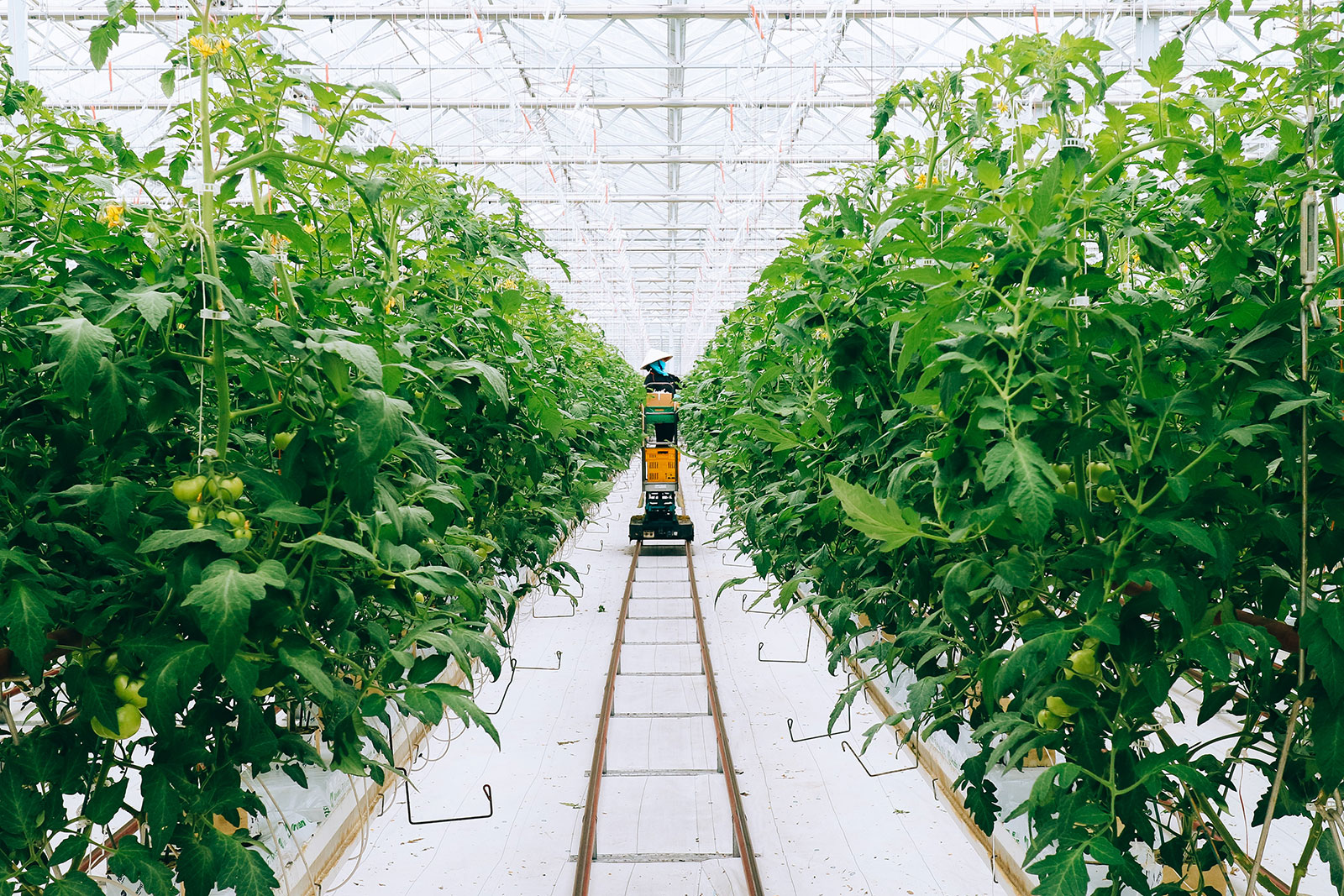A Kiwi vegetable growing operation is looking to take a big step forward in the way it grows low-carbon produce, so we can eat our salads knowing they’ve been grown in a more sustainable way. By combining innovative technology and renewable energy, they're proving that horticulture is an industry at the forefront of positive change.
JS Ewers is one of the largest producers of indoor and outdoor produce in New Zealand. They have been growing and selling premium quality produce including tomatoes, capsicums and eggplants, since 1972.
Today they operate one of the most sophisticated growing operations in the world with 12 hectares of glasshouse and 220 hectares of outdoor land in Nelson, producing vegetables 365 days of the year. In 2016, JS Ewers started working with EECA on a sustainable energy strategy.
Pierre Gargiulo, General Manager of JS Ewers, is a proud host at their Nelson site as he discusses the roadmap they’ve developed with EECA since 2017.
Putting a plan in place to reduce emissions is a no-brainer according to Gargiulo.
“It's a hard leap to make but you either change at your own pace or you will be forced to change. If we hadn't done all the work we've done with EECA, we'd be in a very different position to where we are now.”
It's a hard leap to make but you either change at your own pace or you will be forced to change.

Several initiatives had already seen energy use, and therefore carbon emissions, fall – including retrofitted thermal screens in a number of greenhouses to heat the large spaces more efficiently in colder months and keep them cooler during summer.
These reduced the need to use fossil fuels to heat greenhouses, saving over 1500 tonnes of carbon from being emitted annually.
EECA CEO Andrew Caseley says more than 200 hectares of commercial glasshouse operations across New Zealand could benefit from retrofitted thermal screens, multiplying those carbon savings across the industry. “JS Ewers has embraced a low-carbon roadmap, and I think the horticulture sector should watch them with interest, if they’re not already on their own path.”
The most significant carbon savings come with the next project: the company will transition from using coal to biomass for heat generation at the company's main site. The completion date for the final stage of the project is October-2022 depending on how Covid impacts the supply chain for materials for the project.
While JS Ewers had already identified the need to fuel switch, and were champing at the bit to get going, Gargiulo says, “The funding has been critical for us. It was a big part of getting the project over the line.” He notes that “Working alongside EECA to co-fund the next phase will enable JS Ewers to accelerate our progress.”
The benefits will be far wider, though, as the coal emissions and pollution are slashed from the site, and consumers can enjoy low-emission veggies. “This is part of our ongoing focus on sustainability,” Gargiulo says, “so we're in it for the long haul.”
